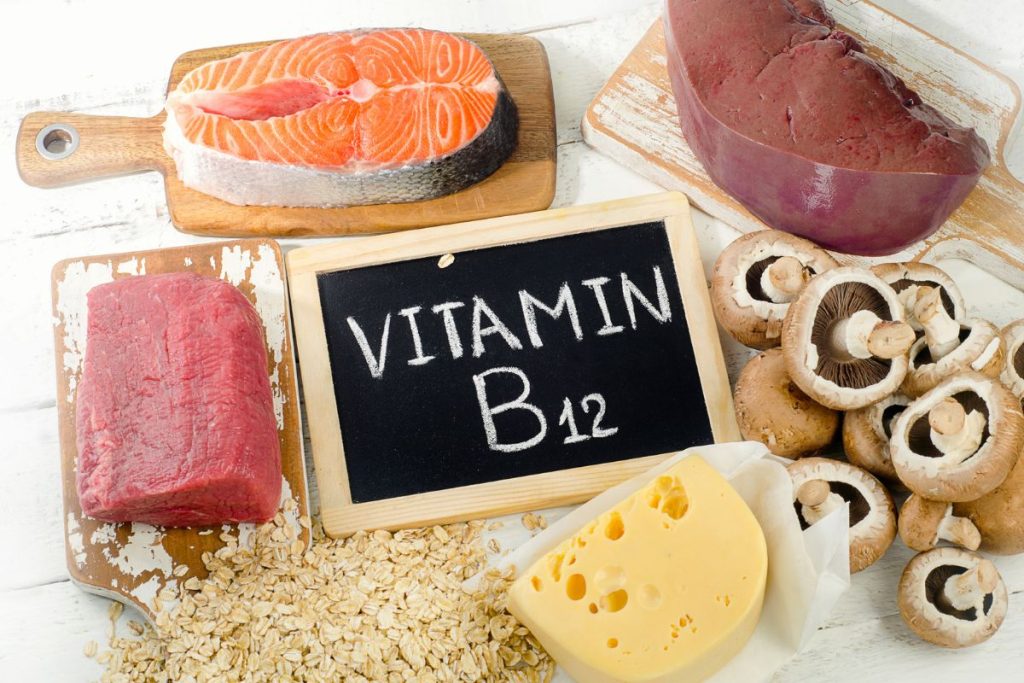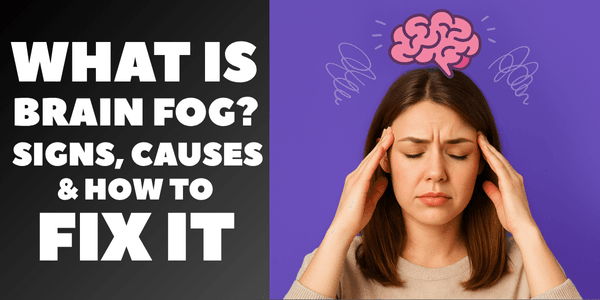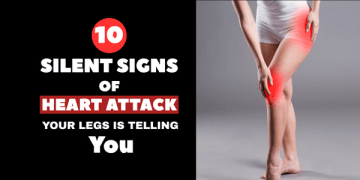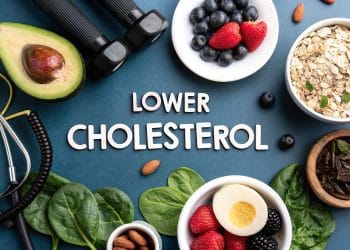Last Updated on June 19, 2025 by Lauretta Iyamu, PharmD
Imagine feeling tired all the time, struggling to focus, and experiencing strange sensations in your hands and feet. These could all be signs of a vitamin B12 deficiency, which can cause serious health problems if not addressed.
Knowing the symptoms, causes, and treatments for B12 deficiency is important for staying healthy and avoiding long-term issues.
What is Vitamin B12?
Vitamin B12, also known as cobalamin, is a vitamin that helps your body in many ways.
It makes red blood cells, helps your nerves work, and is necessary for making DNA, the building blocks of your body.
Vitamin B12 is needed to keep your body healthy. It helps carry oxygen in your blood, supports brain function, and keeps your nerves working properly. Without enough B12, you can feel very tired and weak.
What is a Vitamin B12 Deficiency?
Signs and Symptoms

Vitamin B12 deficiency can manifest in various physical, neurological, and psychological symptoms. These signs can worsen over time and may occur without anemia. Common symptoms include:
- Fatigue and weakness
- Pale or jaundiced skin
- Heart palpitations and shortness of breath
- Nerve problems like numbness or tingling
- Difficulty walking (balance and coordination issues)
- Cognitive disturbances, such as memory loss or behavioral changes
- Glossitis and mouth ulcers
- Breathlessness and dizziness
- Vision problems
| Symptom | Description |
| Fatigue | Feeling extremely tired and weak |
| Pale Skin | Skin may appear pale or jaundiced |
| Heart Issues | Palpitations and shortness of breath |
| Nerve Problems | Numbness or tingling in extremities |
| Cognitive Issues | Memory loss, confusion, and behavioral changes |
| Glossitis | Inflammation of the tongue and mouth ulcers |
| Vision Problems | Blurred or disturbed vision |
Causes of Vitamin B12 Deficiency
1. Not Enough B12 in Your Diet
One big reason for B12 deficiency is not eating enough foods that have B12. These include meat, dairy, and eggs. If you are a vegetarian or vegan, you might not get enough B12 from your food.
2. Trouble Absorbing B12
Some health problems can prevent your body from absorbing B12 properly. Diseases like Crohn’s, celiac, and pernicious anemia can make it hard for your body to get the B12 it needs.
3. Medicines That Affect B12
Certain medicines, like those for acid reflux or diabetes, can also stop your body from absorbing B12 well.
4. Aging
Your body might not make enough stomach acid to absorb B12 as you age. This makes older adults more likely to have a deficiency.
Risk Factors of Vitamin B12 Deficiency
Several factors can increase the risk of developing a B12 deficiency.
Understanding these risk factors can help you determine if you need to be more vigilant about your B12 intake.
- Age: Individuals aged 60 years or older are more likely to be affected by B12 deficiency.
- Diet: A diet lacking in animal products (vegans and vegetarians) can lead to inadequate B12 intake.
- Medical Conditions: Conditions affecting the digestive system, such as Crohn’s disease, celiac disease, or pernicious anemia, can interfere with B12 absorption.
- Medications: Certain medications, such as proton pump inhibitors (PPIs) and metformin, can affect B12 absorption.
- Surgery: Surgical procedures like gastric bypass surgery can reduce the stomach’s ability to extract B12 from food.
How to Diagnose B12 Deficiency
Knowing how to check for a B12 deficiency is important for staying healthy. Here, we’ll discuss the main ways doctors diagnose this issue, including blood tests and checking for pernicious anemia.
Blood Tests
Doctors can determine if you are low on B12 through routine blood tests. The most common tests include a complete blood count (CBC) and a vitamin B12 blood level test.
| Test Type | Normal Range | Deficiency Level |
| Vitamin B12 Blood Test | 200-900 pg/mL | <150 pg/mL |
| Complete Blood Count (CBC) | Varies | Varies |
These tests can still detect low B12 levels even if you don’t have symptoms. If your first test shows low B12, your doctor might suggest more tests to determine why.
What is Pernicious Anemia?
Pernicious anemia is a condition that can cause B12 deficiency. It happens when your immune system attacks the cells in your stomach that help absorb B12 from food.
If you have symptoms of B12 deficiency and low B12 levels, your doctor might do more blood tests to check for pernicious anemia.
These tests aren’t always perfect but can give a good idea if you have this condition.
Treatment and Management
If you are diagnosed with pernicious anemia, it is important to follow your doctor’s treatment plan to manage your condition. This might include taking B12 supplements or getting B12 shots.
Different treatment options and dietary changes can help you manage and overcome vitamin B12 deficiency.
Treatment often requires the use of cyanocobalamin, a synthetic form of vitamin B12.
The treatment approach depends on the cause and severity of the deficiency.
Intramuscular Injections
For severe deficiency, intramuscular injections are often the first treatment. If nerve problems are present, these injections are given three times a week for two weeks or every other day for up to three weeks.
Oral Supplements
For less severe deficiency or as a maintenance therapy, oral vitamin B12 supplements can be effective. These are usually taken daily and are well-absorbed in the digestive system.
Lifelong Therapy
Lifelong therapy may be necessary in cases where the deficiency is caused by an irreversible condition. For example: pernicious anemia or certain surgeries.
| Treatment Type | Frequency | Dosage |
| Intramuscular Injections (no nerve issues) | 3 times per week | 1 mg |
| Intramuscular Injections (with nerve issues) | Every other day | 1 mg |
| Oral Supplements | Daily | As prescribed |
Dietary Recommendations

Adding vitamin B12-rich foods to your diet is another effective way to combat deficiency.
If you are diagnosed with a B12 deficiency, seeing a dietitian might help you create a personalized eating plan.
Foods Rich in Vitamin B12
- Animal Liver and Kidneys: Lamb liver is one of the richest sources of vitamin B12.
- Fish: Salmon, trout, and tuna are excellent sources.
- Meat: Beef and chicken are good sources of B12.
- Dairy Products: Milk, cheese, and yogurt contain moderate amounts of B12.
- Eggs: Especially the yolk.
- Fortified Foods: Certain plant-based milk, breakfast cereals, and nutritional yeast often have added B12.
| Food Source | B12 Content (μg per 100g) |
| Lamb Liver | 85.7 |
| Salmon | 4.15 |
| Beef | 2.64 |
| Milk (fortified) | 0.46 |
| Eggs | 1.1 |
| Fortified Cereals | 5.0 (per serving) |
By combining the right treatment options with smart dietary changes, you can effectively address and manage a B12 deficiency.
Always consult with healthcare professionals for personalized advice and treatment plans.
Complications of Untreated B12 Deficiency
A B12 deficiency can lead to serious health problems if not treated. Knowing these risks can help you take action to stay healthy.
Nerve Damage
Not treating a B12 deficiency can damage your nerves. This can cause numbness, weakness, and a “pins and needles” feeling in your hands and feet.
In severe cases, it can even lead to paralysis that cannot be reversed.
Mental Health Issues
A B12 deficiency can also affect your mental health. You might have mood swings, memory problems, or even serious issues like psychosis (seeing or hearing things that aren’t there) or losing control of your body movements.
Changes in the brain due to low B12 can make your brain shrink and raise homocysteine levels, which can lead to dementia and Alzheimer’s disease.
| Neurological Effect | Symptoms |
| Nerve Damage | Numbness, Weakness, “Pins and Needles” |
| Mental Health Issues | Mood Swings, Memory Problems, and psychosis |
| Brain Changes | Brain Shrinkage, High Homocysteine, and dementia |
Pernicious Anemia
Pernicious anemia happens when your body can’t make enough red blood cells due to a lack of B12. This condition can cause permanent nerve damage and can be deadly if not treated.
Other Serious Complications
- Depression and Cognitive Decline: Severe B12 deficiency can lead to deep depression, paranoia, memory loss, and loss of taste and smell.
- Increased Risk of Certain Cancers: Low B12 levels have been linked to a higher risk of stomach cancer.
- Infertility: B12 deficiency can affect reproductive health, possibly leading to infertility.
- Bone Health: People with long-term B12 deficiency have a higher risk of osteoporosis (weak bones).
- COPD Exacerbation: For those with chronic obstructive pulmonary disease (COPD), low B12 levels can make symptoms worse.
It’s important to recognize and address B12 deficiency early to prevent these serious health issues.
Understanding the signs and symptoms and taking proactive steps to manage your health can reduce the risks associated with B12 deficiency.
How to Prevent B12 Deficiency
You can prevent B12 deficiency by eating a balanced diet with enough B12-rich foods.
Taking vitamin b12 supplements can help keep your B12 levels up if you’re at risk.
Eating various foods that include animal products or fortified foods is important.
B12-fortified foods and supplements are essential for vegetarians and vegans to prevent deficiency. Fortified foods are a great way to get B12, especially if you don’t eat animal products.
Many breakfast cereals, plant-based milks, and nutritional yeast have added B12.
How to Manage Vitamin B12 Deficiency Symptoms
Here’s how you can manage and keep symptoms under control:
- Taking Supplements
- Eating a balanced diet
- Following your doctor’s advice
Regular blood tests to monitor your B12 levels are important, especially if your condition affects absorption. This helps make sure your treatment is working.
Support groups, nutritional counseling, and online forums can provide valuable information and support for people with B12 deficiency.
Wrapping Up
Vitamin B12 deficiency is a serious condition that can cause many health problems if not treated. By understanding the symptoms, causes, and treatments, you can take steps to prevent and manage this deficiency.
Regular screening, a balanced diet, and proper supplementation are key to maintaining good health and avoiding long-term complications.
Check out this article for more information on supplements that can help with overall health. To learn more about different nutritional deficiencies, visit this page.
FAQs
Q1: What are the common symptoms of a B12 deficiency?
A: Common symptoms include feeling very tired, weak, and dizzy. You might also have pale or yellowish skin, a fast heartbeat, and trouble thinking clearly.
Q2: How can I get more B12 in my diet?
A: You can get more B12 by eating foods like meat, fish, eggs, and dairy. If you’re vegetarian or vegan, try fortified cereals and plant-based milks.
Q3: Who is at risk for B12 deficiency?
A: Vegetarians, vegans, older adults, and people with certain medical conditions like pernicious anemia or gastrointestinal disorders are at higher risk.
Q4: How is a B12 deficiency diagnosed?
A: Doctors diagnose B12 deficiency through blood tests that measure B12 levels and sometimes additional tests to check for underlying causes like pernicious anemia.
Q5: What treatments are available for B12 deficiency?
A: Treatments include increasing B12-rich foods, taking high-dose B12 supplements, or getting B12 injections, especially if you have absorption issues.








































